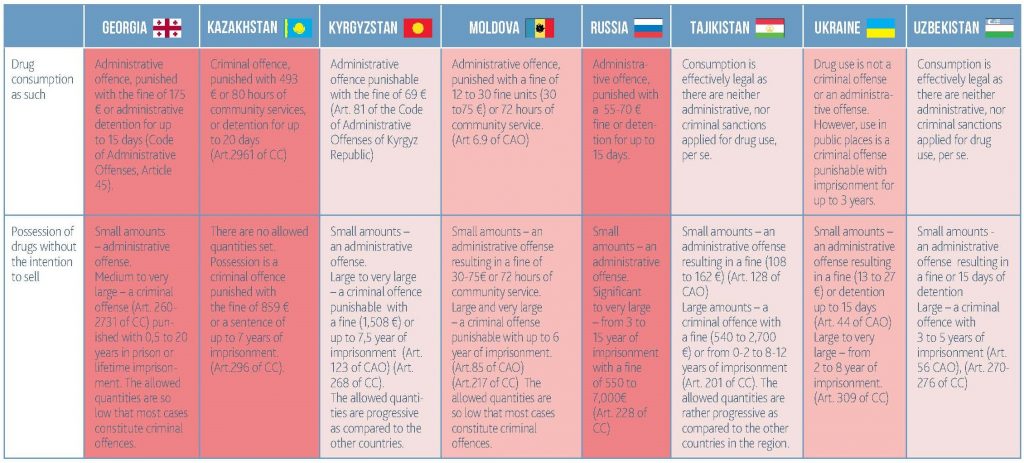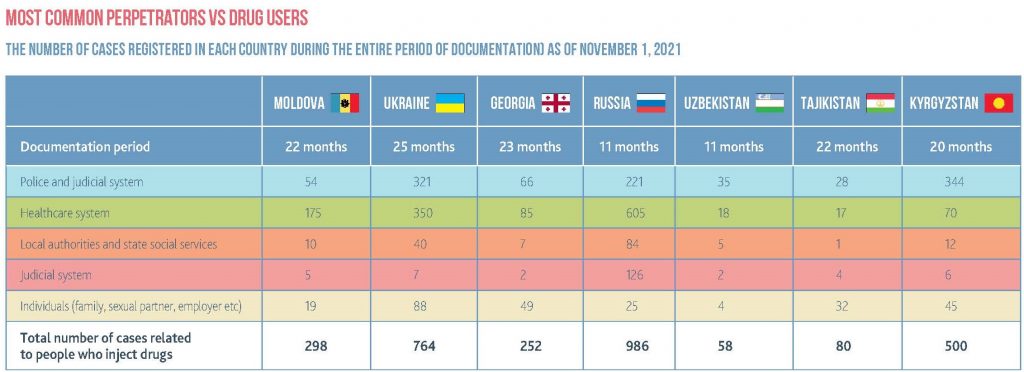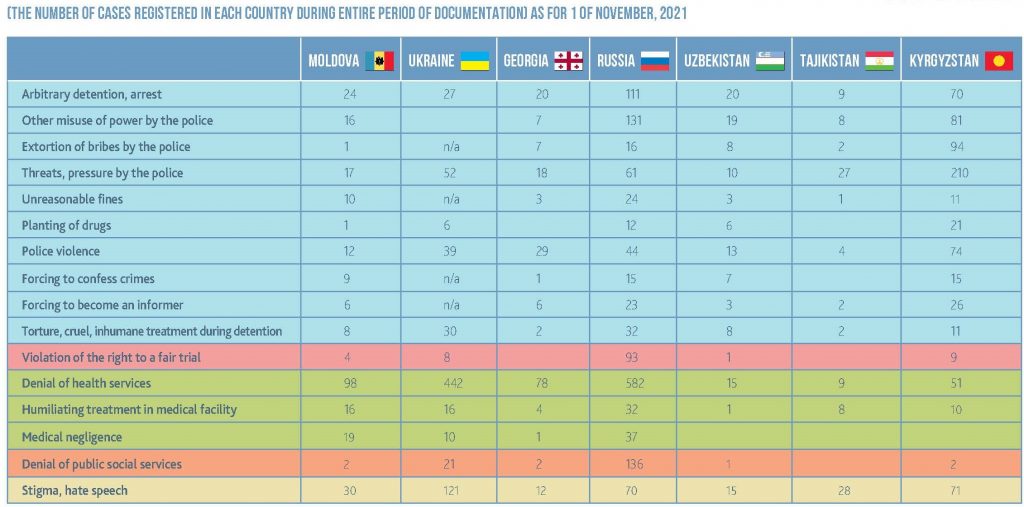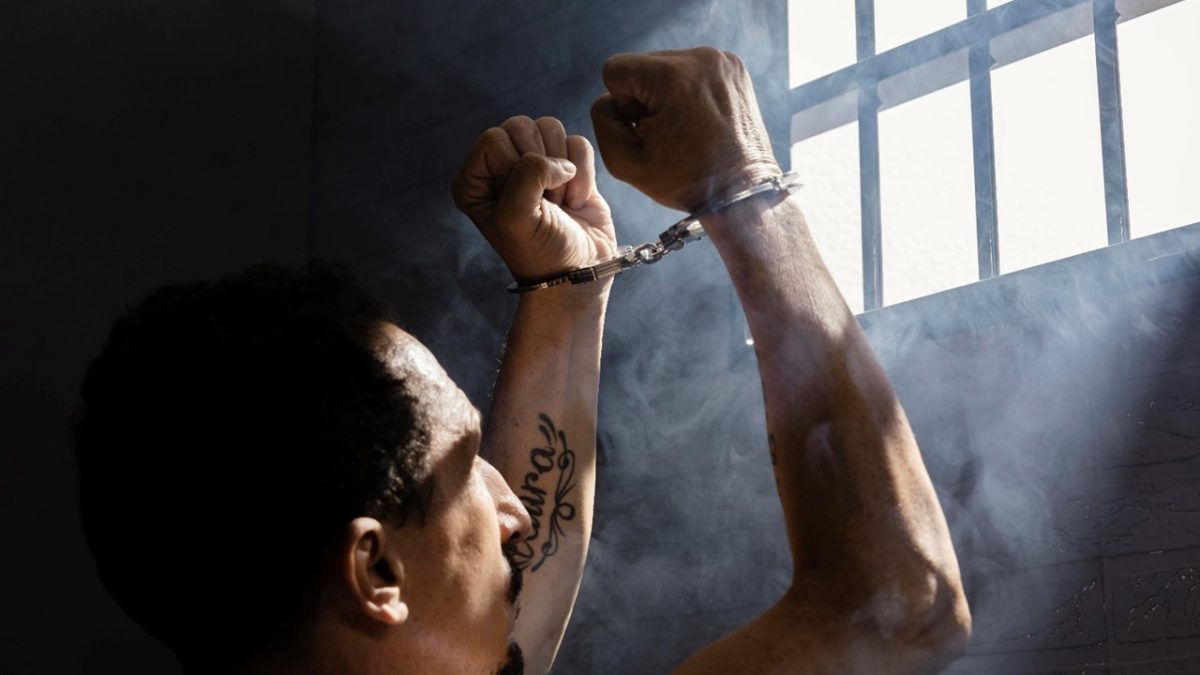Eastern Europe and Central Asia is the only region in the world where new HIV infections among all age groups have continued to rise, according to UNAIDS data.
The policy environment in EECA is dominated by punitive drug laws. People who live with drug dependence are exposed to discrimination based on their chronic health condition, arbitrary arrest, and ill-treatment by the police.
EECA Drugs Regulation

The color scale shows the severity of punishment in the countries’ legislation for drug use and possession for personal use. However, the light color doesn’t mean that
drug users are not criminalized in the country. Rather, in the countries (such as Kyrgyzstan, Tajikistan) where laws related to drug use are quite progressive police
practices on the ground remain quite discriminative against drug users.
Evidence collected in REAct

The most frequent violators of PWIDs’ rights are the police (from 18% in Moldova to 68% in Kyrgyzstan) and the healthcare system (from 14% in Kyrgyzstan to 61% in Russia). However, the types of violations are quite different if we compare these two groups of perpetrators.
In respect of the healthcare system, we have recorded such cases as humiliating treatment or denial of health services, which are not so severe and violent as excessive use of force, violence, torture, arbitrary detentions that the police practice on a regular basis against drug users.
The table below shows that the range of violations committed by the police is much broader than those committed by other perpetrators.
All in all, on average one out of every three cases registered in the EECA region, is about the police and law enforcement agencies severely violating fundamental human rights such as the right to life, freedom, bodily integrity etc.

At a first glance at this table, it becomes clear that most violations take place in healthcare settings. Indeed, 43% of complaints are related to discriminative denial of health services. However, it is important to keep in mind that when a client sought for health services, he/she comes to an NGO, so that a REActor (paralegal) can easily document the case.
Alternately, when a person is detained it is almost impossible to reach him/her with legal services or document such a case, as police officers rarely even let detainees make phone calls. That is why, we believe, the percentage of cases attributable to the
police that we have managed to record are just a small portion of the actual number of violations practiced by the police.
The evidence we have collected proves that violations such as police violence, arbitrary detentions, forced confessions are deeply enrooted in the day-to-day practices of police officers. Such cases should be considered as routine practices rather than rare exceptions.


